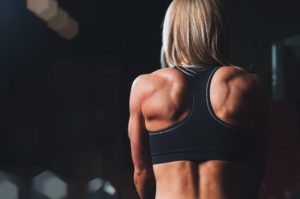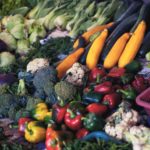If you are an athlete, you rely on your body. Your livelihood depends on your physical prowess, your conditioning, your strength (both mental and physical), your focus and probably most importantly, your ability to recover. So how good is your recovery? Without good, optimal recovery you are unable to train hard, improve your skills and be at the top of your game.
So now you’re probably thinking, yeah what’s your point; and how is Acupuncture going to make me a better athlete? Well, it just might be the missing piece in your ability to recover, improve your focus, and manage your pains, strains, stress and more.
According to this study, Acupuncture improved the body’s overall anti-oxidant activity as well as reduced the amount of oxidative stress markers. In other words, it makes your body better at moderating the effects of stress (Liu & Liu 2013). As an athlete, you are constantly putting your physical and mental body under duress. This stress creates a similar stress response in your body, as does a stressful situation, thought or emotion. Your body can’t tell the difference between physical activity stress and the stress we are more commonly aware of in everyday situations. It just so happens that stress is inevitable and some of us (athletes) even seek it out. So it’s not whether we get stressed or why; what matters is how adept our bodies are at dealing with it.
So, what is going to help? Anti-oxidants help. Sleep helps. Rest helps. Managing your aches and pains helps. Diet, nutrition and supplementation help.
Stress, Digestion & Hormones…
 Acupuncture, as it so happens improves anti-oxidant activity and thereby your ability to manage the by-products of stress (Liu & Liu 2013). How you ask? Acupuncture works well to maintain digestive health and there is a high probability that by improving your digestion, you thereby improve your ability to absorb and utilize important enzymes, minerals and vitamins that are essential to healing tissue and negating oxidative stress. In addition to aiding in your digestive function, Acupuncture also aids in the production and distribution of hormones and neurotransmitters promote stress relief as well as improve focus and performance. So, you are able to recover faster, feel better, have more energy, gain more strength, keep better focus. In addition, your body is able to absorb nutrients in order to keep strong bones, tendons and connective tissue.
Acupuncture, as it so happens improves anti-oxidant activity and thereby your ability to manage the by-products of stress (Liu & Liu 2013). How you ask? Acupuncture works well to maintain digestive health and there is a high probability that by improving your digestion, you thereby improve your ability to absorb and utilize important enzymes, minerals and vitamins that are essential to healing tissue and negating oxidative stress. In addition to aiding in your digestive function, Acupuncture also aids in the production and distribution of hormones and neurotransmitters promote stress relief as well as improve focus and performance. So, you are able to recover faster, feel better, have more energy, gain more strength, keep better focus. In addition, your body is able to absorb nutrients in order to keep strong bones, tendons and connective tissue.
Sleep & Recovery…
Acupuncture also helps improve your sleep. Whether you aren’t able to fall asleep, stay asleep, or just don’t feel rested no matter how much sleep you get. A trained Acupuncturist can narrow down the causal pattern and improve your sleep quality, which in turn improves your recovery (Huo, Guo & Li, 2013).
Strains & Pains…
Athletes have a high tendency to get injured… it’s true. Unfortunately it’s a price you pay to keep active, stay healthy and climb the ladder to the top. It may be inevitable, but you don’t want it to keep you down for too long. You want to heal faster and come back stronger. Well, it just so happens that Acupuncture improves your healing capacity, decreases the amount of time you spend healing and strengthens the tissues (bones, ligaments and tendons) so your future chances of injury are much less. In addition it relieves pain associated with minor or major injuries as well as delayed onset muscle soreness (O’Connor, 2012) (Xu, Lin, Chen , Yu & Huang, 2012).
Prevention…
In addition to helping manage your injuries, Acupuncture is also helpful in preventing them and optimizing your movement patterns. At some point during your training regimen, your muscles are going to get tight here and fatigued there, creating a myriad of imbalances in the structure and function of your body. You may notice that some movements are harder, feel heavier or there is a vague discomfort in your actions. Acupuncture, along with mobility exercises and stretching can put these imbalances back into balance thereby preventing strain and injury. Not only that, but it will keep your body more agile and moving optimally (Mukaino, 2008).
Diet, Nutrition & Supplementation…
As far as diet, nutrition and supplementation, eating a whole foods diet (lots of fresh, organic vegetables and plenty of grass-fed protein), limiting refined sugars, wheat & gluten and alcohol are the best, basic guidelines for good nutrition. Supplementation is a whole topic unto itself that I may just have to get into one day in the future and is very individual to each person in his or her specific needs.
So, there you have it. Acupuncture wins again and hopefully you do too!
Till next time ~ Be well & get yourself some Acupuncture!
Erin Resko L.Ac
Sources:
Huo, Z., Guo, J., & Li, D. (2013). Effects of acupuncture with meridian acupoints and three anmian acupoints on insomnia and related depression and anxiety state. Chinese Journal of Integrative Medicine, 19(3), 187-191. doi: 10.1007/s11655-012-1240-6
Liu, J. Y., and L. M. Liu. “[Influence of electroacupuncture intervention on free radical metabolism in athletes undergoing intensive endurance exercise].” Zhen ci yan jiu= Acupuncture research/[Zhongguo yi xue ke xue yuan Yi xue qing bao yan jiu suo bian ji] 38, no. 1 (2013): 48-51 – See more at: http://www.healthcmi.com/acupuncturist-news-online/755-acupuncturesp10st36#sthash.gcqeYmhd.dpuf
Mukaino, Y. M. D. (2008). Sports acupuncture – the meridian test and its applications. Seattle, WA: Eastland Press Inc.
Xu, X., Lin, W., Chen , J., Yu, L., & Huang, Z. (2012). Efficacy observation on rear thigh muscles strain of athletes treated with surrounding needling of electroacupuncture and hot compress of chinese medicine. Chinese Acupuncture and Moxibustion, 32(6), 511-514. Retrieved from http://www.ncbi.nlm.nih.gov/pubmed/22741257



